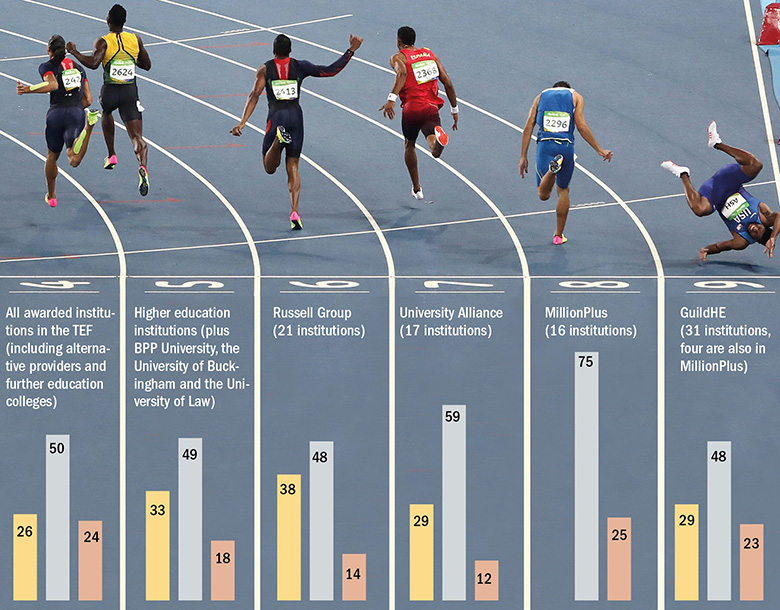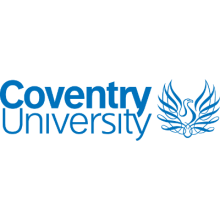The London School of Economics and the University of Southampton are among some of the world-renowned UK higher education institutions to be awarded bronze in the first teaching excellence framework (TEF).
The University of Liverpool was the third member of the Russell Group of elite research-focused institutions to be handed the lowest ranking in the UK’s first institutional assessment of teaching quality, which was published on 22 June.
Other well-known institutions to receive a bronze award include Soas, Goldsmiths and St George’s, a highly rated medical school – all part of the University of London – with 12 of the 25 bronze higher education institutions based in the capital.
The lowly ranking of the LSE – the UK’s fifth highest-ranked university in the Times Higher Education World University Rankings 2016-2017 – puts it on a par with London Metropolitan University and the University of East London, and will provoke much discussion about the TEF, which is based on metrics related to graduate outcomes, student satisfaction scores and course completion rates, as well as a 15-page submission from providers.
Overall, a third of the 137 higher education institutions and alternative providers with university status assessed in the TEF received gold awards, including the universities of Cambridge and Oxford, as well as six other Russell Group institutions (the universities of Birmingham, Exeter, Leeds and Nottingham, plus Imperial College London and Newcastle University). Ten of the 21 Russell Group members entered into the TEF (48 per cent) gained silver – roughly the same proportion of institutions that achieved this level across the entire university sector (49 per cent).
However, several universities that fare less well on traditional league tables have also been awarded gold, such as Bangor University, and the universities of Derby and Northampton. Coventry University and the University of Portsmouth are some of the other post-92 institutions to scoop the TEF’s top ranking – outperforming their older and more heralded neighbours at the universities of Warwick (silver) and Southampton (bronze).
Vital statistics: key figures and performance by mission group (percentage)

Source: THE Analysis
Dominic Shellard, vice-chancellor of De Montfort University, which also took a gold award, said that the TEF was “a massive game changer” that would “create new hierarchies of universities”.
“Its results will have a huge impact on admissions and on international recruitment,” said Professor Shellard.
“If you look at what the TEF measures, it’s exactly the kind of things that provoke questions from students and parents on open days – for instance, how will you support students to gain a rewarding job? So applicants will be interested in its results,” he added.
Professor Shellard said that he was “quite surprised” by the detailed feedback from the TEF panel, indicating that assessors had absorbed some of the more nuanced arguments laid out by institutions.
“I thought that it would be purely metrics-based with the narrative adding only a little, but I think that they’ve moved away from an assessment that is 100 per cent on metrics, which makes [the results] more plausible,” he said.
“We know there are some of the big beasts in bronze [that] will make a big fuss, but that will be the wrong strategy,” he added.
Writing for THE, Chris Husbands, who chaired the TEF and is vice-chancellor of silver winner Sheffield Hallam University, said that “institutions with a gold rating come from all parts of the sector, with different missions and approaches”.
“Their practices do, however, have some common and compelling characteristics,” said Professor Husbands, highlighting engagement with students that “takes their interests, needs, aspirations and trajectories seriously and sees them as real partners in the development of teaching, going way beyond instances of student representation”.
It was important to remember, added Professor Husbands, that “there is no sense in which any TEF ratings constitute ‘failure’ [as] awards go above and beyond the already stringent baseline standards for quality in UK higher education”, while silver and bronze institutions often had “seams of gold” in certain areas of academic provision.
Tim Bradshaw, the acting director of the Russell Group, said that its institutions deliver “an outstanding student experience where teaching is enhanced by world-class research and facilities” and that the “current TEF model risks understating how well some universities are performing”.
The TEF’s assessment of performance “against expected benchmark values based on student profiles, rather than absolute outcomes” means that “some universities may find it near impossible to secure a gold or silver TEF rating even if they are outperforming most other institutions”, said Dr Bradshaw.
“If TEF rankings are taken at face value, then it is easy to imagine potential students ruling out otherwise excellent universities on the basis of an untested measure that does not fully reflect the experience universities provide,” he added.
Register to continue
Why register?
- Registration is free and only takes a moment
- Once registered, you can read 3 articles a month
- Sign up for our newsletter
Subscribe
Or subscribe for unlimited access to:
- Unlimited access to news, views, insights & reviews
- Digital editions
- Digital access to THE’s university and college rankings analysis
Already registered or a current subscriber?










